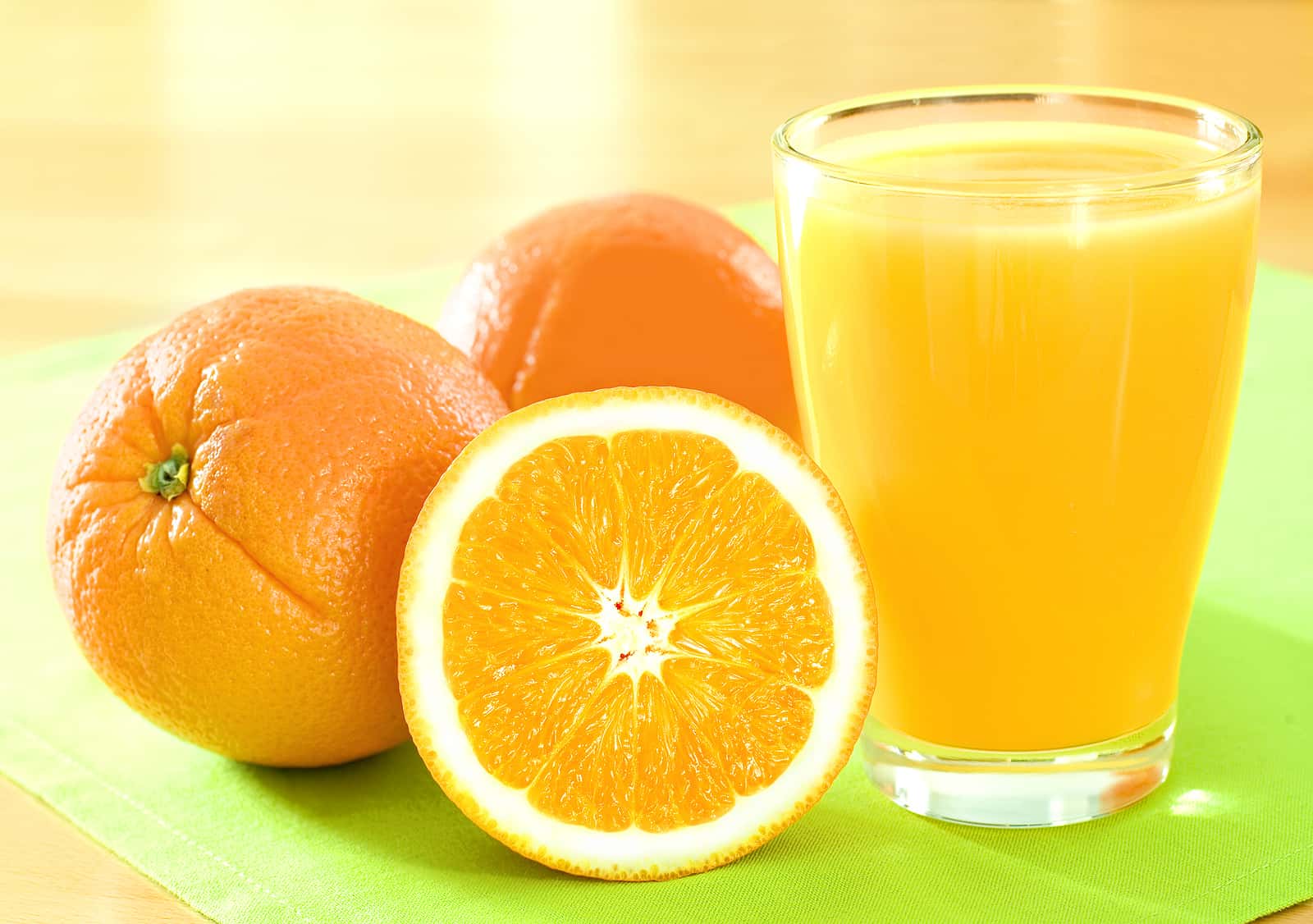
Are you getting your vitamins? Trying to stay healthy to avoid infection with COVID-19 is prompting some people to take a closer look at their diets. Do you need to make some changes to ensure you are getting enough vitamins, especially vitamin C, in food?
How Much Vitamin C Is in Orange Juice?
Q. How much orange juice does it take to get 1000 mg of vitamin C?
A. If you were drinking fresh-squeezed orange juice, you would need to drink 7.5 glasses (8 oz each) to get 1000 mg of vitamin C. The recommended dietary allowance for women is 75 mg. Men are supposed to get 90 mg of vitamin C daily.
Although a deficiency disease like scurvy is relatively rare in the US, roughly 7 percent of Americans don’t get enough vitamin C to meet minimal standards (Journal of Applied Laboratory Medicine, Jan. 2, 2023). Maybe it’s time to consider how to get more vitamin C in food.
Looking for Vitamin C in Food:
Q. A few weeks ago, a reader wrote about not being able to tolerate citrus fruit and wondered about vitamin C deficiency. You answered the question regarding supplements, but you never once mentioned whole foods that have plentiful vitamin C. In some cases, they have even more than citrus.
Most nutritionists recommend that healthy individuals get their vitamins and minerals from whole foods and skip the supplements. Some, like vitamin B12 or vitamin D, could be hard to get from the diet but most are unnecessary.
I’m not suggesting one shouldn’t take synthetic vitamins. But I think that most vitamin pills can’t compare to obtaining nutrients from whole foods in which vitamins and other phytonutrients work synergistically. Perhaps vitamin C in a tomato works with lycopene to be effective.
Here are some examples of non-citrus whole foods that have a significant amount of vitamin C (based on a one-half cup serving unless noted):
- Red bell pepper—95 mg
- Kiwifruit (medium)—64 mg
- Green bell pepper—60 mg
- Broccoli—51 mg
- Strawberries—49 mg
- Brussel sprouts—48 mg
- Kale—40 mg
- Tomato juice (3/4 cup)—33 mg
I could go on, but that is enough to give you the idea.
A. Thank you for making the point that it is possible to get the recommended daily amount of vitamin C in food, even without consuming orange or grapefruit juice. The RDA for adult men is 90 mg per day and for women is 75 mg per day. There are more details on RDA at various ages and a longer list of food sources of vitamin C (including citrus fruits) at this page from the National Institutes of Health Office of Dietary Supplements.
We are in favor of including plenty of nutrient-dense foods like bell peppers and broccoli in your diet. However, people may need supplements sometimes. The best resource we know to determine where your diet might be wanting and how much vitamin or mineral you should take is the book by Dr. Tieraona Low Dog, Fortify Your Life: Your Guide to Vitamins, Minerals, and More. Your local library should have a copy.
Researchers are now considering the possibility that vitamins could help fight infections like COVID-19 (Nutrients, Aug. 23, 2020). While studies are incomplete, many scientists think that adequate amounts of vitamins A, C, D and E may help reduce inflammation and help protect against a COVID-induced cytokine storm (Aging Clinical and Experimental Research, Oct. 2020).
Citations
- Powers CD et al, "Vitamin C status of US adults assessed as part of the National Health and Nutrition Examination Survey remained unchanged between 2003–2006 and 2017–2018." Journal of Applied Laboratory Medicine, Jan. 2, 2023. https://doi.org/10.1093/jalm/jfac093
- Jovic TH et al, "Could vitamins help in the fight against COVID-19?" Nutrients, Aug. 23, 2020. DOI: 10.3390/nu12092550
- Fiorino S et al, "Cytokine storm in aged people with CoV-2: possible role of vitamins as therapy or preventive strategy." Aging Clinical and Experimental Research, Oct. 2020. DOI: 10.1007/s40520-020-01669-y

